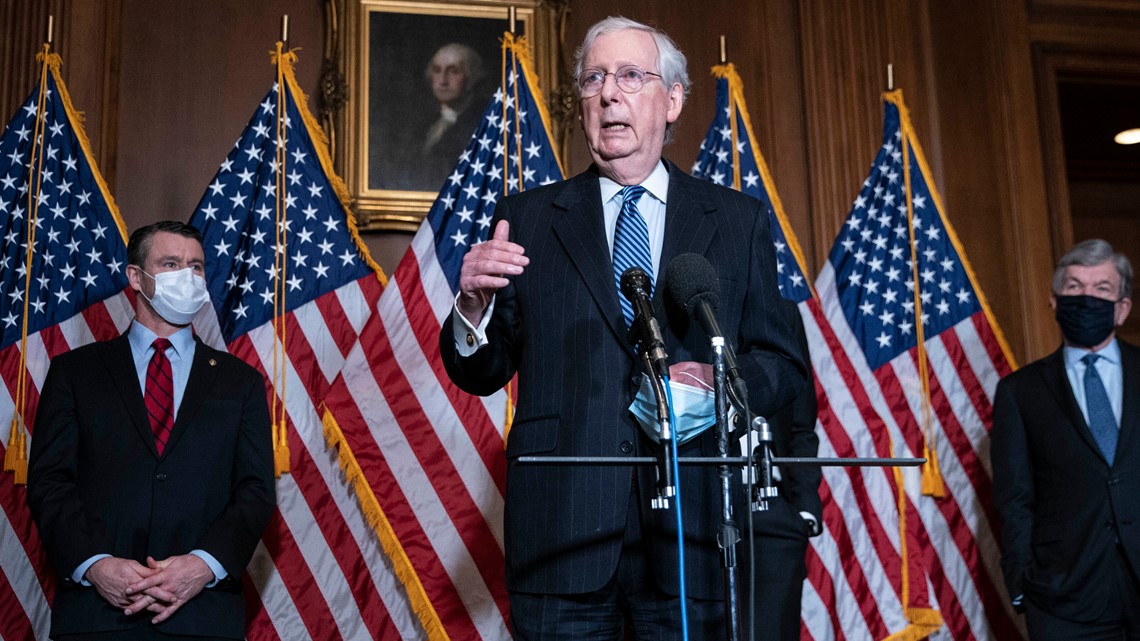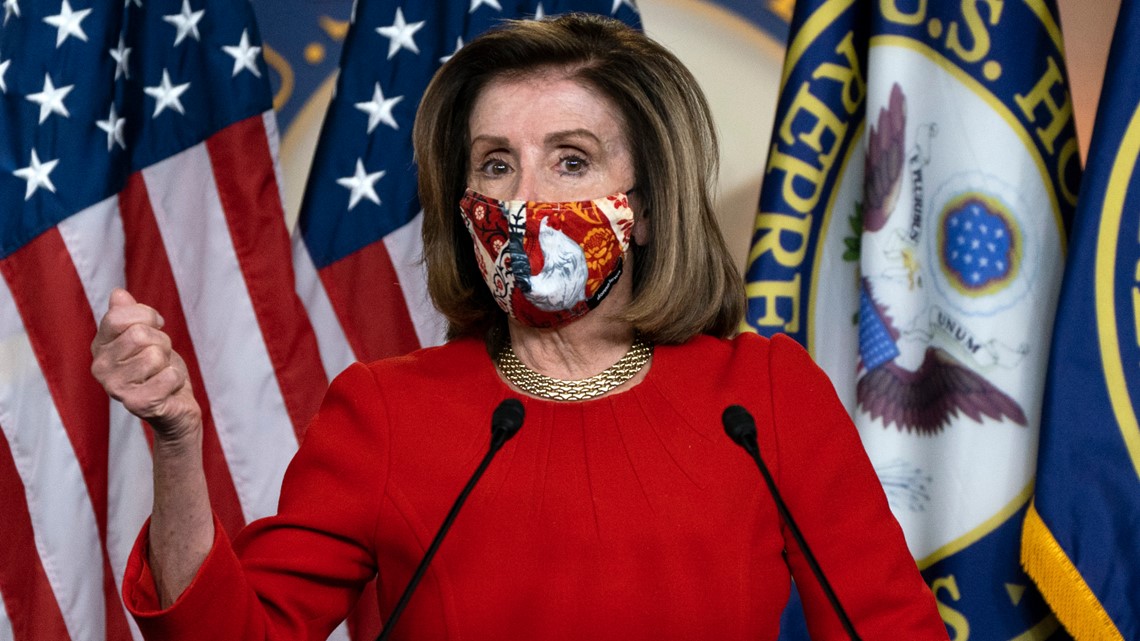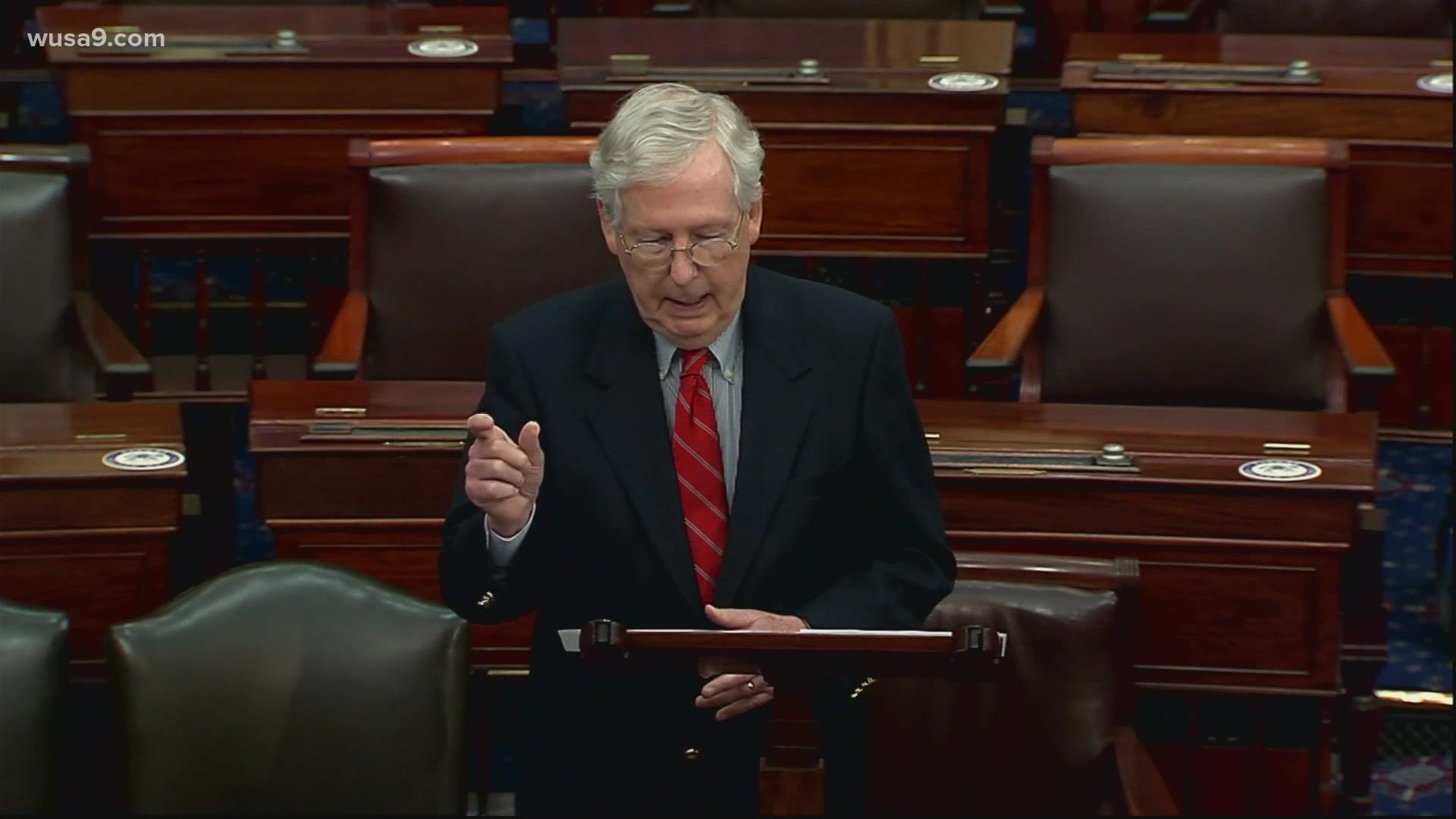WASHINGTON — President Donald Trump signed a temporary government-wide funding bill into law on Friday, averting a federal shutdown at midnight and buying Congress time for on-again, off-again talks on COVID-19 aid.
The short-term measure passed the Senate just hours earlier by a unanimous voice vote without much drama and sent senators home for the weekend without a clear picture of what awaits next week. The bill sets a new deadline of midnight next Friday. The House passed the bill Wednesday.
The talks are stalled but there is universal agreement that Congress won't adjourn for the year without passing a long-delayed round of pandemic relief. An emerging $900 billion aid package from a bipartisan group of lawmakers hit a rough patch after Senate Majority Leader Mitch McConnell, R-Ky., swung against the effort. Still, negotiations are ongoing and pressure remains intense.
The House has recessed for a few days, with leaders warning members to be prepared to return to Washington to vote on the year-end deals.
Negotiators on a separate $1.4 trillion omnibus spending bill appeared to be moving in a positive direction, said the chairman of the Senate Appropriations Committee, Sen. Richard Shelby, R-Ala. This bill would serve as a vehicle to carry any year-end virus assistance.
“I’m hopeful we’re going to get there on both the omni and the COVID package," McConnell said.


Fixing the impasse over the COVID-19 aid package is a Capitol Hill head-scratcher and hard feelings are plentiful. But discussions over issues such as aid to schools are trending well, leadership aides in both parties say.
Trump has renewed a push for a fresh round of stimulus checks for Americans, proposing $600 per individual rather than the $1,200 that was sent out this spring. Cost concerns are responsible for the smaller amount.
Sending direct cash payments to households was not included in the bipartisan proposal or a lower cost plan from Senate Republicans that has failed twice. The idea of another round of cash but has been embraced by some of the president's fiercest critics — including Rep. Alexandria Ocasio-Cortez, D-N,Y., and Sen. Bernie Sanders, I-Vt.
“We're not going to go home for the Christmas holidays unless we make sure that we provide for the millions of families in this country who are suffering," Sanders said.


House Speaker Nancy Pelosi, D-Calif., said Congress would keep working up to or even after Christmas to get an agreement. The new Congress is being sworn in on Jan. 3.
The $900 billion-plus proposal provides sweeping new funds for vaccines, small businesses, health care providers, schools and families suffering from the virus crisis and the economic shutdowns.
A key hold up has been the standoff over more money for the states, that Democrats - and some Republicans - want and the liability shield for businesses and universities that is McConnell's top GOP priority but that most Democrats oppose.
The bipartisan group tried to marry those two provisions as a compromise.
McConnell had initially proposed a five-year liability shield from virus lawsuits, retroactive to December 2019, but the bipartisan group was eyeing a scaled-back shield of six months to a year. Labor and civil rights groups oppose any shield, which they say strips essential workers of potential legal recourse as they take risks during the pandemic.
Democratic leaders had wanted far more in state and local aid, but were accepting of the lower $160 billion.
But many Republicans have long viewed the state and local aid as a bailout they would have trouble supporting, despite the pleas for funds coming from governors and mayors nationwide.
Late Thursday, Sen. Dick Durbin and other Democrats pitched another liability proposal to the bipartisan group, but it was rejected by Republicans, according to a Senate aide granted anonymity to discuss the private session.
The Trump administration is back in the middle of the negotiations with a $916 billion plan. It would send a $600 direct payment to most Americans but eliminate a $300-per-week employment benefit favored by the bipartisan group of Senate negotiators.
The White House offer has the endorsement of the top House Republican and apparent backing from McConnell. Democrats oppose the plan in part because of the administration's refusal to back the partial restoration, to $300 per week, of bonus pandemic jobless benefits that lapsed in August.

